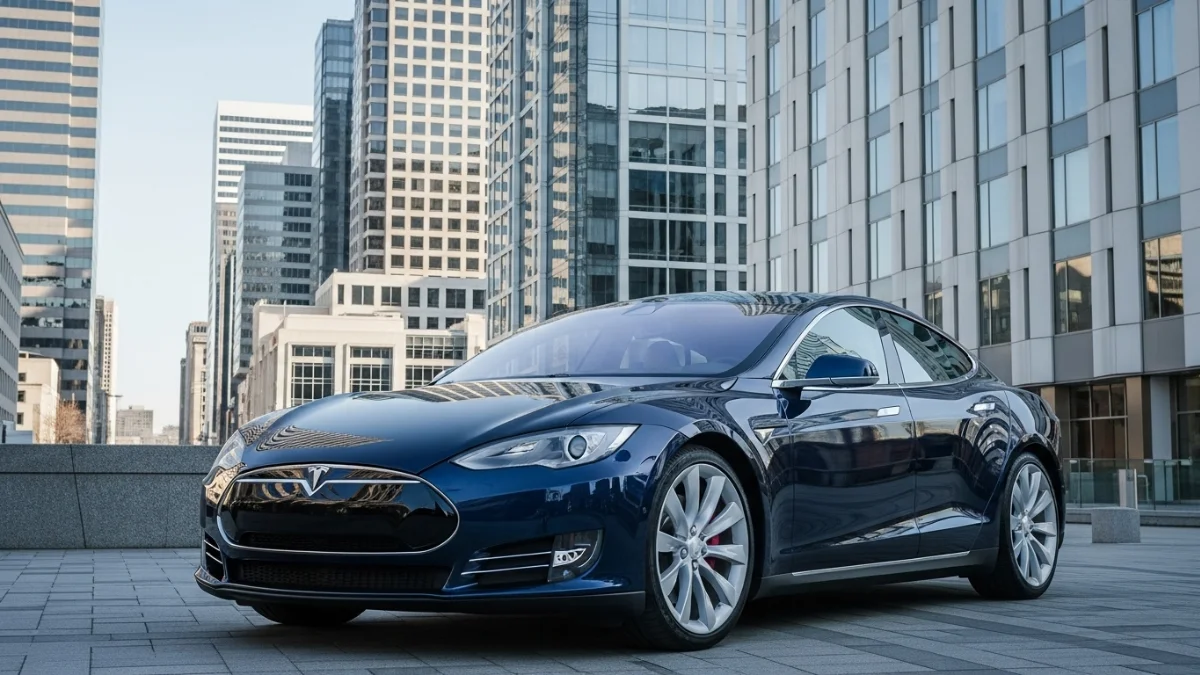Tesla transformed the automotive industry with electric power, cutting-edge software, and bold design. Many shoppers now ask worldwide: Is Tesla a luxury car? This question reflects shifting definitions of premium transportation and consumer status expectations.
This article answers in depth: Is Tesla a luxury car for you today?
Tesla qualifies as a luxury car for some models, offering advanced technology globally. It combines high performance, premium features, and sustainability with a unique brand identity. However, its accessible models blur lines between mainstream vehicles and true luxury categories worldwide.
Is Tesla a Luxury Car? Understanding What Luxury Means Today
Luxury cars emphasize heritage, craftsmanship, premium materials, and exclusivity over ordinary vehicles globally. These factors provide superior comfort, performance, and prestige for discerning drivers everywhere today. Price alone cannot determine luxury, because true quality encompasses both emotional and physical experiences universally.
Modern standards add sustainability, autonomy, and high-tech features to the definition worldwide. Brands like Mercedes, BMW, and Lexus seamlessly integrate advanced technology with heritage craftsmanship. These combined elements shape how Tesla competes within today’s evolving luxury segment globally.
Traditional Criteria for Luxury Cars
Luxury automakers build reputations on decades of consistent craftsmanship and heritage worldwide. They offer premium materials, bespoke options, and exceptional customer service experiences globally. Prestige and exclusivity at higher price points define traditional luxury vehicles across markets.
Examples include hand-stitched leather interiors, unique paint options, and limited production runs worldwide. Such elements create emotional connections between owners and their luxury vehicles globally. These aspects still influence how buyers perceive brands competing with Tesla everywhere.
Modern Criteria: Tech, Comfort, Sustainability
Advanced driver assistance systems showcase innovation beyond older automotive designs globally. Electric or hybrid powertrains emphasize sustainable luxury performance in emerging markets worldwide. High performance combined with reduced environmental impact reshapes buyer expectations significantly everywhere.
Connectivity, software updates, and personalization also define new luxury experiences globally. Brands that embrace innovation attract younger, affluent buyers seeking technology that combines comfort and prestige worldwide. Tesla fits strongly into this modern definition through its software and EV leadership globally.
Tesla’s Features, Design, and Technology
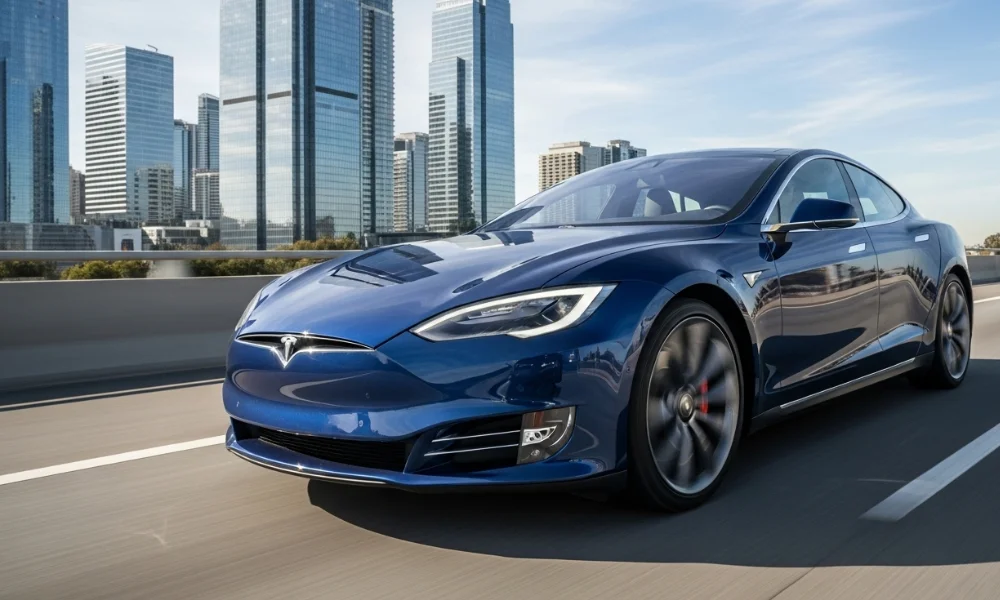
Tesla integrates performance, technology, and sustainability into every production model today worldwide. Interiors feature minimalist styling, large touchscreens, and premium finishes in higher trims globally. This approach redefines modern automotive luxury beyond traditional expectations and heritage perceptions worldwide.
Autopilot, over-the-air updates, and software advantages place Tesla ahead technologically globally. These innovations highlight a shift where modern luxury centers on innovation, rather than history, worldwide. Tesla thus delivers an updated luxury experience focused on sustainability and digital connectivity globally.
Interior and Materials of Tesla Models
Model S and Model X feature spacious cabins and upgraded interior finishes worldwide. Model 3 and Model Y deliver simpler designs focusing on affordability and practicality globally. This difference highlights Tesla’s dual positioning as both a luxury and an accessible electric vehicle brand globally.
High-quality vegan leather, premium audio systems, and advanced climate controls enhance interiors globally. Yet critics note inconsistent panel gaps and limited customization compared to established luxury brands worldwide. This mix supports both praise and criticism for Tesla’s interior quality globally.
Performance, Acceleration, and Tech
Tesla vehicles provide instant torque, high acceleration, and impressive driving dynamics globally. Features like Autopilot and Full Self-Driving clearly highlight the vehicle’s premium technological advantages worldwide. These characteristics reinforce Tesla’s reputation as a globally innovative and premium automotive manufacturer.
Performance metrics, such as 0–60 mph in under two seconds, excite enthusiasts globally. Tesla’s Plaid variants compete with supercars while offering everyday practicality worldwide. Such performance redefines expectations for electric vehicles within the luxury category globally.
Price Points and Value Proposition
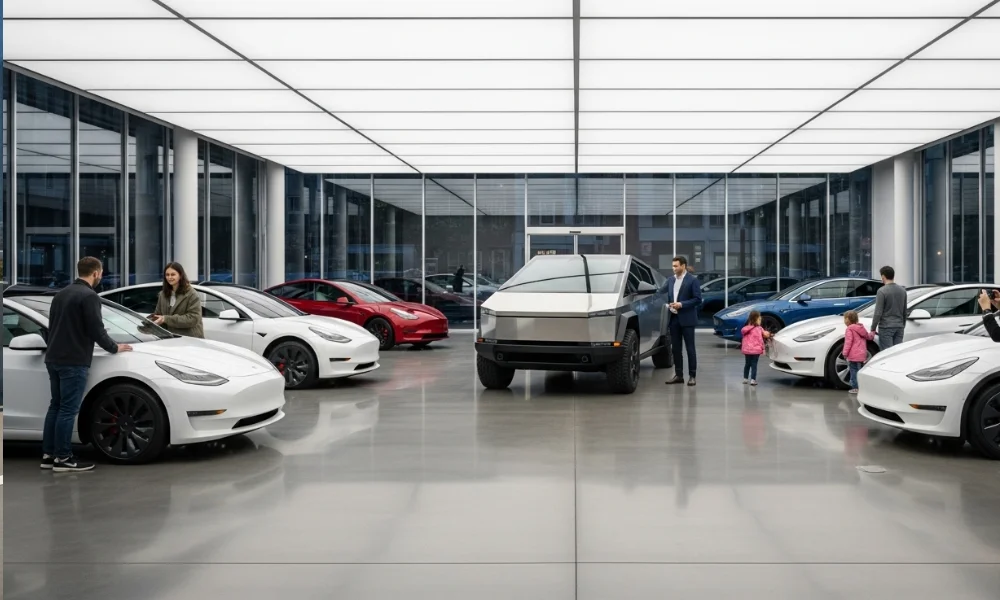
Tesla’s pricing spans premium to mainstream levels, depending on the model and configuration, globally. Model S and Model X compete with the BMW 7 Series or the Mercedes S-Class worldwide. This aligns them closely with established luxury sedans in terms of performance and prestige globally.
Model 3 and Model Y target a broader audience with lower pricing, intentionally global. This strategy expands Tesla’s market but challenges its strict luxury classification worldwide. Consumers view Tesla differently depending on the model they evaluate carefully globally.
Tesla Model Pricing Table
| Tesla Model | Starting Price (Approx.) | Comparable Luxury Model |
|---|---|---|
| Model S | $72,000+ | Mercedes S-Class, BMW 7 Series |
| Model X | $80,000+ | Audi Q8, BMW X7 |
| Model 3 | $38,000+ | BMW 3 Series, Audi A4 |
| Model Y | $44,000+ | Lexus NX, Mercedes GLC |
Ownership and Resale Value
Lower maintenance costs and software updates clearly enhance Tesla’s long-term ownership value worldwide. Resale value remains competitive with many traditional luxury vehicles in multiple markets globally. These factors increase Tesla’s appeal as a cost-effective premium electric choice globally.
Insurance costs may be higher due to parts availability and repair complexity globally. However, government incentives and fuel savings offset some ownership expenses worldwide. Buyers must evaluate the total cost of ownership carefully when comparing Tesla with luxury brands globally.
Brand Perception and Prestige
Tesla enjoys a reputation for innovation, environmental leadership, and advanced technology worldwide. Its models are considered status symbols by tech-savvy and eco-conscious buyers globally. This perception strengthens Tesla’s luxury image despite its limited heritage and classic craftsmanship roots worldwide.
However, Tesla lacks the decades of legacy that have shaped traditional luxury brand identities globally. This gap influences how certain buyers judge its exclusivity and prestige carefully worldwide. Heritage remains a core factor distinguishing older brands from Tesla’s newer image globally.
Tesla vs. Traditional Luxury Heritage Brands
Mercedes and BMW have built long-standing reputations for luxury and craftsmanship globally. Tesla competes by redefining luxury through technology, performance, and sustainability, effectively worldwide. This modern focus differentiates Tesla from heritage-driven luxury automakers worldwide.
Cadillac and Lexus blend heritage with modern technology to maintain luxury status worldwide. Tesla’s disruptive image attracts younger buyers who are less concerned with tradition globally. This generational shift may redefine perceptions of luxury in the long term across global markets worldwide.
Changing Position with Pricing Adjustments
Recent price cuts have increased Tesla’s mainstream appeal and reduced exclusivity significantly worldwide. This strategy can dilute the prestige often linked to established luxury brands globally. Buyers may now view Tesla differently than they did when it held its earlier premium status worldwide.
At the same time, Tesla’s innovation narrative sustains aspirational value despite its high global affordability. Limited-edition features or software unlocks may restore exclusivity for high-end models worldwide. The balance between growth and prestige will shape Tesla’s luxury identity globally.
Where Tesla Fits and Where It Falls Short
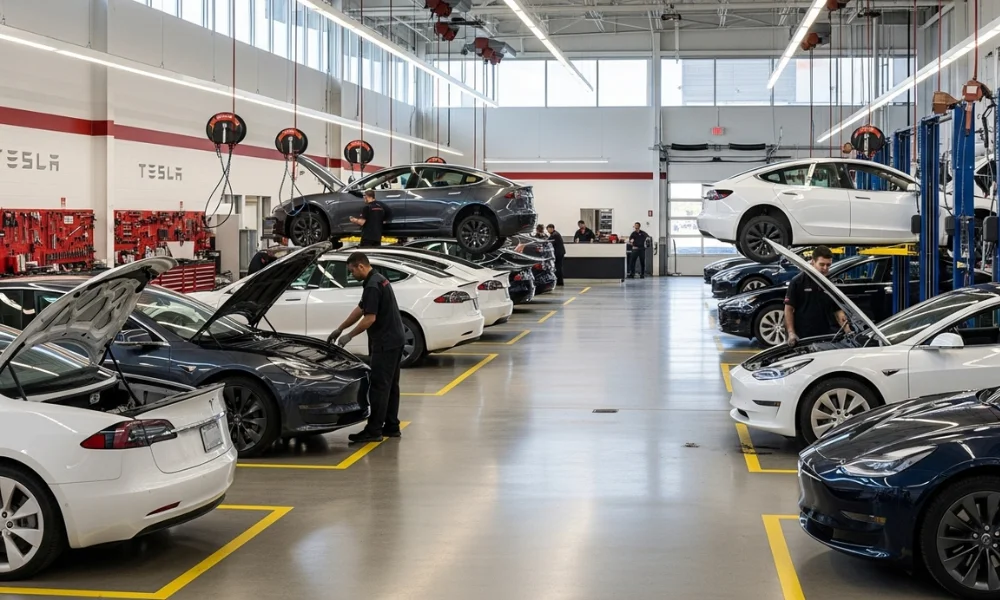
Tesla blends premium performance and technology with broader accessibility across global markets worldwide. Model S and Model X clearly qualify as luxury vehicles under modern definitions globally. These cars embody Tesla’s highest performance, premium materials, and innovative features worldwide.
Models 3 and Y appeal to wider audiences with fewer luxury touches globally. They maintain core technology but sacrifice some refinement and exclusivity intentionally worldwide. This dual identity presents both opportunities and challenges for Tesla’s global brand perception.
Tesla’s Strengths as a Luxury Brand
-
High performance combined with advanced software and connectivity features globally.
-
Cutting-edge sustainability and electric powertrain technology appeal to eco-conscious buyers worldwide.
-
Minimal maintenance costs and strong resale value enhance ownership experiences effectively worldwide.
Tesla also benefits from strong media coverage that reinforces its innovation narrative globally. This visibility elevates the brand beyond typical automakers in public perception worldwide. Such exposure is valuable for maintaining aspirational status, even during periods of global price fluctuations.
Areas Tesla Falls Short
-
Limited service network compared to traditional luxury competitors internationally.
-
Mixed interior quality and craftsmanship in lower-priced models globally.
-
Less brand heritage than older established luxury automakers worldwide.
Some buyers report inconsistent customer service and delivery experiences globally. These issues can undermine the premium feel expected from luxury car brands worldwide. Addressing these weaknesses could strengthen Tesla’s position as a top-tier luxury choice globally.
Tesla Models Compared with Luxury Segments
Breaking down each Tesla model helps clarify its position within the global luxury spectrum. Every model carries different pricing, features, and audience expectations globally. This segmentation reveals how Tesla spans both premium and mainstream categories simultaneously worldwide.
Model S Tesla’s Flagship Luxury Sedan
The Model S offers long-range capability, high performance, and cutting-edge interior technology worldwide. It directly competes with the Mercedes S-Class, BMW 7 Series, and Audi A8 globally. Many reviewers rank it among the best luxury electric sedans available today worldwide.
Plaid versions deliver supercar-level acceleration while maintaining practical usability globally. This combination reinforces the Model S as Tesla’s most definitive luxury offering worldwide. Buyers seeking prestige and innovation often gravitate toward this flagship model globally.
Model X Luxury Electric SUV
The Model X combines spacious seating with distinctive Falcon Wing doors worldwide. It competes with the BMW X7, Audi Q8, and Mercedes GLS globally. Premium audio, panoramic glass, and advanced driver aids enhance the luxury experience worldwide.
However, some critics cite inconsistencies in build quality compared to established luxury SUVs globally. These differences highlight Tesla’s challenge in striking a balance between innovation and traditional craftsmanship worldwide. Nonetheless, Model X remains a unique premium SUV choice for technology-focused families globally.
Model 3: Premium Entry-Level Sedan
Model 3 targets a wider audience with lower starting prices globally. It competes with the BMW 3 Series, Audi A4, and Lexus IS worldwide. While not fully luxury, it offers strong performance and technology for the price globally.
Interior simplicity appeals to minimalists but may feel sparse to traditional luxury buyers worldwide. This model exemplifies Tesla’s mainstream expansion strategy beyond exclusive segments globally. Yet, advanced software still gives it a premium edge over rivals worldwide.
Model Y Compact Premium SUV
Model Y extends Tesla’s reach into the compact crossover segment globally. It competes with Mercedes GLC, Lexus NX, and BMW X3 worldwide. Buyers appreciate its range, tech, and low running costs globally.
However, interior materials and noise insulation lag behind top-tier luxury SUVs worldwide. Model Y thus sits between premium mainstream and entry-luxury categories globally. It showcases Tesla’s ambition to dominate volume segments while maintaining its technology leadership worldwide.
Customer Experience and Ownership Insights
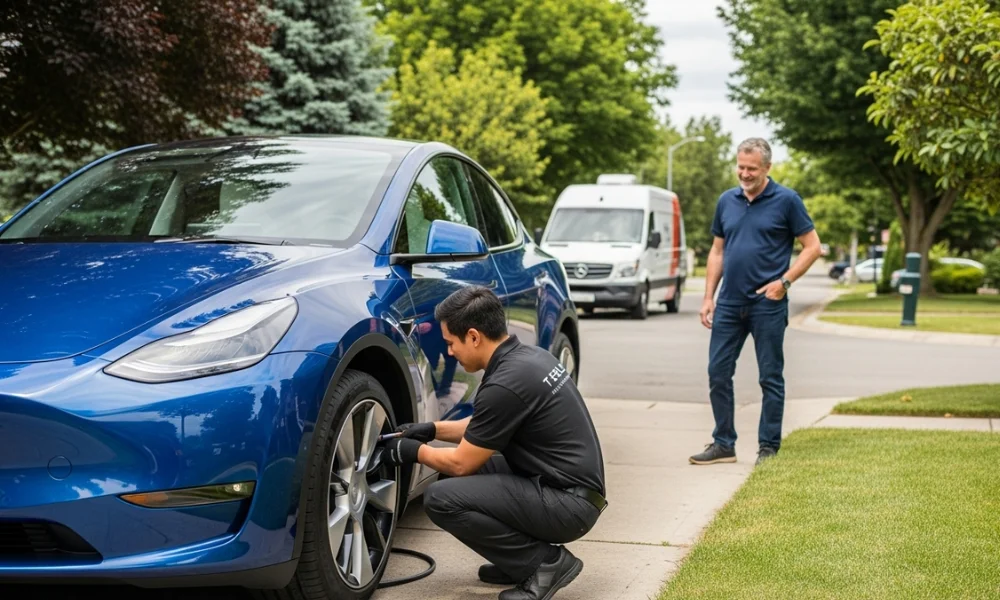
Beyond performance and price, ownership experience defines luxury brands worldwide. Tesla offers mobile service, over-the-air fixes, and a direct sales model globally. These elements streamline maintenance and updates, appealing to tech-savvy consumers worldwide.
Yet some customers report delays, inconsistent communication, and service limitations globally. Luxury buyers expect concierge-level treatment, which Tesla is still developing worldwide. Enhancing this area would further align Tesla with traditional luxury standards globally.
Owner Satisfaction and Reviews
Surveys show high satisfaction with Tesla’s driving experience, performance, and technology worldwide. Many owners view Tesla as a symbol of status and a global leader in innovation. This reinforces Tesla’s reputation as a modern luxury brand across demographics worldwide.
Complaints focus on fit-and-finish issues, service availability, and delivery delays globally. Addressing these concerns could help Tesla’s perception align more closely with that of established luxury leaders worldwide. Consistency is crucial for maintaining long-term premium brand equity worldwide.
Tesla’s Impact on Redefining Luxury
Tesla has changed how people think about luxury vehicles worldwide. Electric performance, software-driven experiences, and sustainability are now mainstream considerations for luxury globally. Traditional automakers are investing heavily in EVs to compete with Tesla’s model worldwide.
This shift benefits consumers by expanding choices in premium electric mobility globally. It also challenges long-held assumptions about what constitutes luxury in the global automotive industry. Tesla’s role in this transformation secures its place in global luxury discussions.
Sustainability as a Luxury Feature
Environmental responsibility now influences luxury purchases worldwide. Tesla’s zero-emission vehicles enable affluent buyers to showcase their values alongside their status globally. This aligns with a broader cultural shift toward conscious consumption among wealthy demographics worldwide.
Luxury is increasingly about innovation, ethics, and sustainability, not just materials globally. Tesla embodies this shift by making eco-friendly performance aspirational worldwide. Such positioning differentiates it from traditional luxury automakers, which rely on legacy models globally.
Technology as a Status Symbol
Software-driven features and constant improvements signal innovation leadership on a global scale. Tesla’s Autopilot and Full Self-Driving demonstrate forward-thinking capability worldwide. Owning such technology can signify prestige similar to luxury heritage globally.
Frequent updates and new features give Tesla an evolving premium experience worldwide. This dynamic approach contrasts with static model-year upgrades of traditional automakers globally. Younger buyers, especially, value this continuous improvement as part of the luxury experience worldwide.
Conclusion: Is Tesla a Luxury Car?
Tesla represents a luxury car brand, offering premium experiences with its flagship models worldwide. It combines innovation, sustainability, and advanced technology with strong performance and prestige globally. However, its accessible models blur the line between mainstream vehicles and true luxury worldwide.
Ultimately, when you ask yourself, “Is Tesla a luxury car?” consider your priorities carefully worldwide. For buyers, Tesla delivers a unique blend of innovation, status, and value globally. Explore Tesla’s lineup to decide which model best fits your definition of luxury today worldwide.

